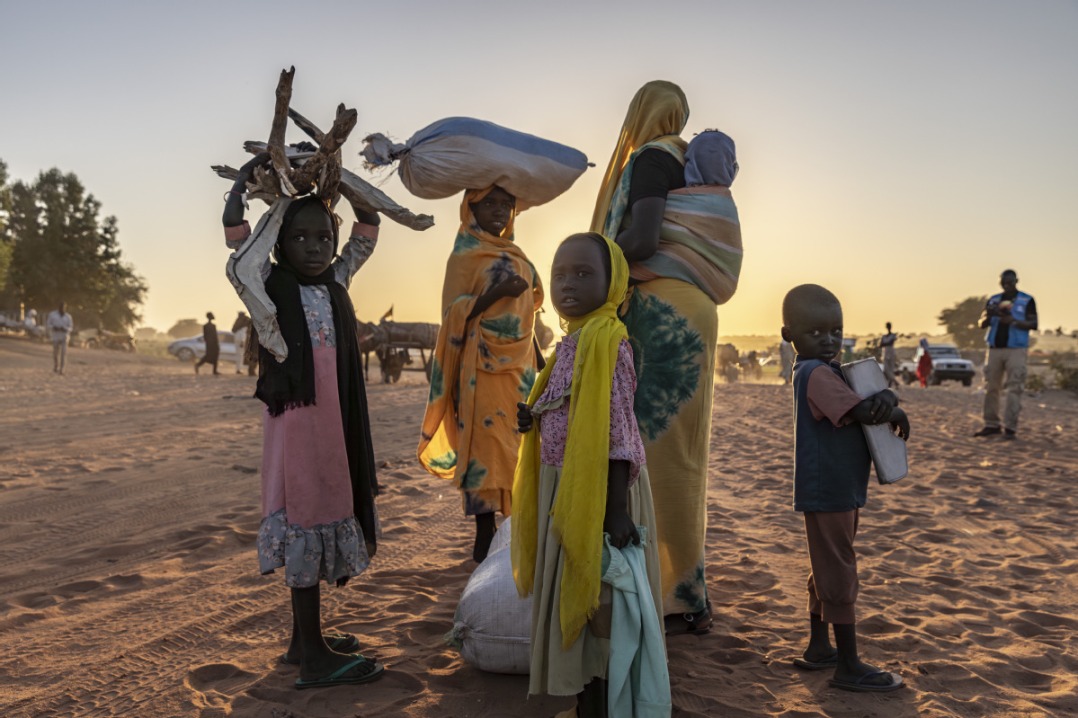EU faces a time of challenges
Boosting group's competitiveness, managing relationship with Beijing among major issues ahead


Domestic issues
"I want to say this very clearly, now and in the future, I will do everything I can to prevent this European Union from spiraling into debt," he told the parliament, or Bundestag, just two days after the release of the Draghi report.
Germany and France, the EU's two largest economies, are busy coping with domestic political and economic crises. German Chancellor Olaf Scholz's coalition government has been greatly weakened in the past year after losing regional elections to not just the Christian Democratic Union, but also the right-wing populist Alternative for Germany party.
The German economy is in poor shape due to high energy costs and low export demand. The Bundesbank predicted that the economy will shrink again in the third quarter of the year, after registering negative growth in two of the past three quarters.
The announcement by Intel CEO Pat Gelsinger on Sept 16 to postpone the construction of a 30-billion-euro chip factory in Magdeburg, Germany, for at least two years, could not come at a worse time for both Berlin and Brussels, which bet on the project injecting confidence in reviving the bloc's advanced microchip manufacturing.
Germany has become a headache for the European Commission and angered neighboring Schengen countries by introducing land border checks for six months starting on Sept 16 in a bid to crack down on illegal migration. The new border controls with France, Luxembourg, the Netherlands, Belgium and Denmark were in addition to the ones introduced earlier with Austria, Switzerland, the Czech Republic and Poland.
Dissatisfaction over the EU's contentious migration policy has been simmering in several other member states, too. The Netherlands has asked for an opt-out of the EU's migration policies. Hungary intends to do the same.
France, the second-largest EU economy, is also mired in a domestic political crisis.
French President Emmanuel Macron, whose allies lost in the European Parliament election in June to far-right parties, named a new government on Sept 21 led by Prime Minister Michel Barnier, a former EU negotiator for Brexit. But opposition politicians from the left quickly announced their plans to undermine the new government with a no-confidence motion in parliament.
Jean-Luc Melenchon, leader of the New Popular Front, which won most seats in the parliament, dismissed the new government as made up of "general election losers".
Jordan Bardella, leader of the National Rally, condemned the composition of the new government and claimed that it is "a return to Macronism" and has "no future whatsoever".
Ding Chun, director of the Center for European Studies at Fudan University, said the major challenges facing the EU are its survival and development.
"The EU is facing many challenges posed by de-globalization, rising populism, resistance to further integration, lack of innovation, an aging population, the Russia-Ukraine conflict, the impact of the US containment policy of China and EU's bid for strategic autonomy," Ding said.
Lai Suetyi, an associate professor at the Center for European Studies at Guangdong University of Foreign Studies, said that von der Leyen's second term, like the first term, will unlikely be an easy one.
Besides the prolonged Russia-Ukraine conflict and the rise of right-wing populism, Lai is worried that the pressure of an economic downturn in the EU and globally could mean fewer resources for the bloc's vital green and digital transitions.
"Nevertheless, the track record of the EU has shown deeper and wider integration upon crises, so I am not pessimistic about it," she said.
The European Parliament elections in June saw the European Greens obtaining only 51 seats, down from the 71 in 2019. The new balance of power suggests that the implementation of a European Green Deal may no longer be a top priority for EU citizens amid the rising cost of living, migration and the prolonged Russia-Ukraine conflict.
While the EU has passed laws to ban the sale of new combustion engine cars by 2035, the European Commission's imposition of provisional tariffs on Chinese EVs, which started in July, is expected to slow down the EU's ambition in green transport transition. The new tariffs on Chinese EVs will hit 35.3 percent on top of the EU's universal 10 percent tariff on all cars.
Chris Aylett, a research associate at the Environment and Society Center of the Chatham House, expressed that imposing tariffs on Chinese EVs will make the EU's low-carbon transition slower and more expensive.































